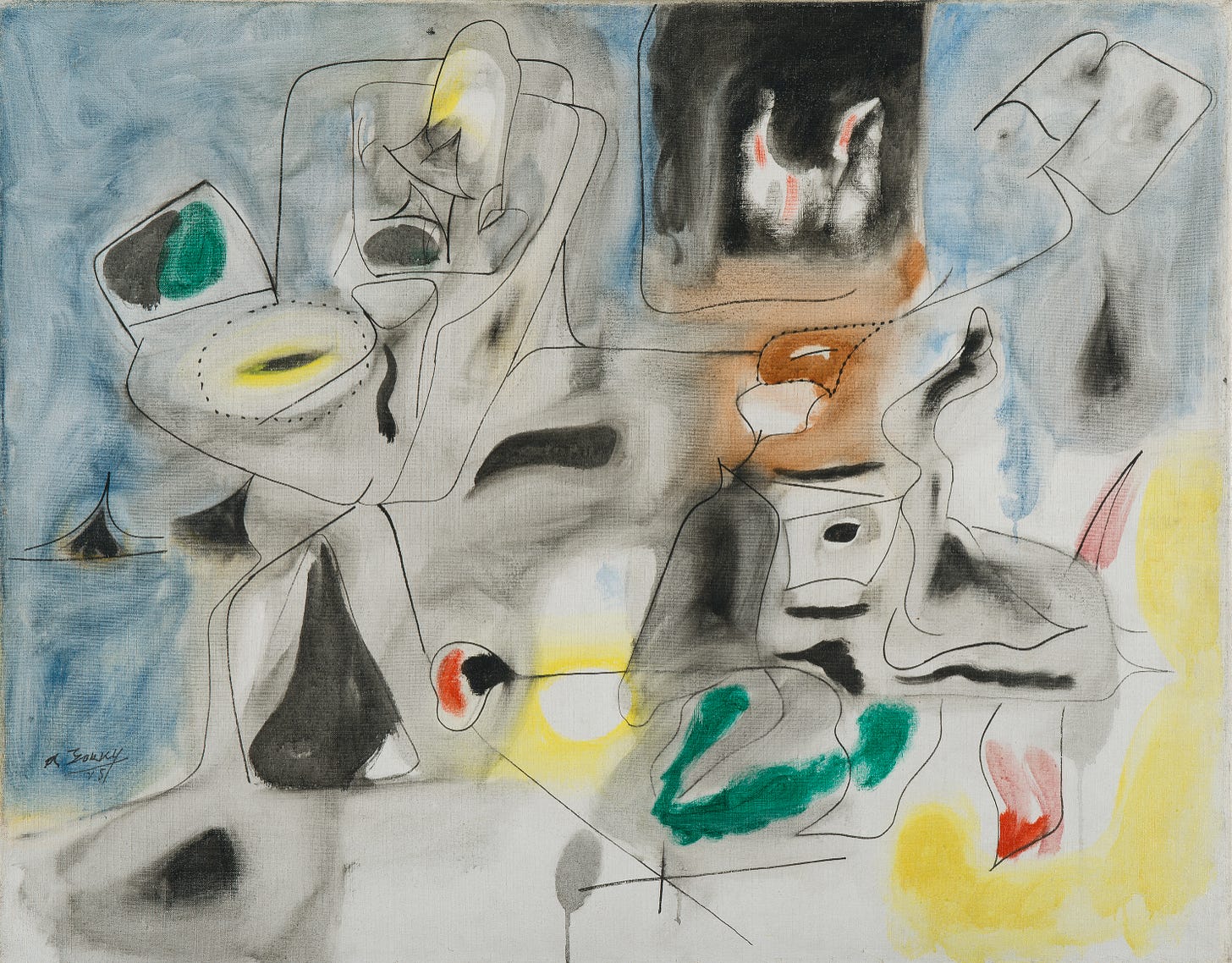things take time
Arshile Gorky, Good Hope Road II. Pastoral, 1945
I had a bit of a crisis the other day:
What if the realizations I’m making today about the world are just the ones that everyone makes during this stage of life—that they’re simply a product of time and not of any novel insight of my own?
and by realizations, I don’t mean the small ones like when you learn how to do taxes for the first time; I mean the ones that feel earth-shattering, as if you’ve stumbled upon a little secret about the world and everyone in it.
the one when you wonder why you’re working the same job as everyone else or wearing the same thing everyone else is wearing
the one when you grasp that your parents are actually fallible
the one when you look around yourself at a party and it feels empty
In a neoliberal paradigm, it’s difficult to honor these realizations as rites of passage. From Byung-chul Han in The Agony of Eros:
“Because it appears as freedom, self-generated compulsion is not recognized as such. You can exercise even greater constraint than You should. Auto-compulsion proves more fatal than allo-compulsion, because there is no way to resist oneself. The neoliberal regime conceals its compulsive structure behind the seeming freedom of the single individual, who no longer understand him- or herself as a subjugated subject (‘subject to’), but as a project in the process of realizing itself. That is its ruse: now whoever fails is at fault and personally bears the guilt. No one else can be made responsible for failure. Nor is there any possibility for pardon, relief, or atonement. In this way, not only a crisis of debt occurs—a crisis of gratification does, as well.”
When there’s no dearth of information or advice in the digital age, the onus is on you to get ahead of the mistakes of those in the past. We pat the heads of those who are “mature for their age,” ushering them to advance even more quickly (sometimes the “we” here is the self).
But what do we rob ourselves of in return?
There’s an extraordinary transformation that occurs when you discover something yourself for the first time, regardless of how well-documented the discovery may be by the people around or before you. There is also no joy in discovery without the constraints of the unknown, the growth only earned through the passage of time.
I’ve reached an age where I know just too little and just too much—just enough to both get and give advice.
I know just enough to know that the advice of others isn’t law, but that my own intuitions probably aren’t anything new.
I know just enough to not disparage the desires and actions of youth, but also to acknowledge them as silly.
I know just enough to honor this moment in time, but also to honor the knowledge of those that came before.
When I look back at this stage of my life or the lives of those after me, when I give unsolicited advice or choose to bite my tongue, I hope to do it kindly; not with a glare and a shout, but with a wink and a whisper.
To share in the secrets of the world is a beautiful thing.




